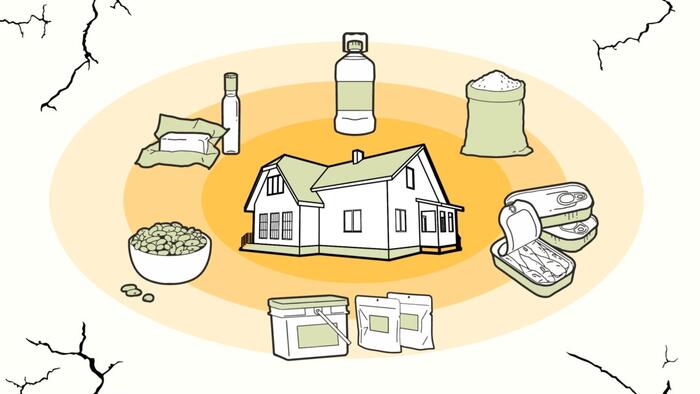In today’s world, emergencies can strike unexpectedly, whether natural disasters such as hurricanes or personal crises like job loss. As individuals increasingly depend on modern conveniences like grocery stores and running water for basic needs, it becomes evident that these resources may not always be available during emergencies. Being proactive in emergency preparedness—having crucial supplies such as food, water, and cash secured—can make a significant distinction between surviving and thriving in a crisis. The importance of preparing cannot be overstated, as the psychological and physical advantages can alleviate stress during troubling times.
Creating a basic emergency plan begins with identifying universal necessities: food and water. Experts often recommend maintaining at least a three-day supply of these essentials for each person and pet in the household, with a preference for planning longer-term options lasting up to two weeks or even a month. Such a reserve ensures survival during prolonged emergencies, affording time for assistance to arrive. To maximize resilience, individuals must account for the number of people in their home, any dietary restrictions or preferences, and cooking requirements that may arise in the absence of electricity. Stockpiling water is particularly crucial, as humans can only survive without it for about three days, thus warranting a minimum one-gallon-per-day guideline for each family member.
Choosing food for an emergency supply requires a strategic approach, as one should store items they routinely consume and enjoy. This can be achieved by regularly purchasing non-perishable items during grocery trips. Pre-packaged emergency meals and home-preserved foods can also enhance a reserve. Key considerations include selecting foods with long shelf lives, avoiding items that require refrigeration, and ensuring they are nutrient-dense. A focus on variety in food storage is recommended to prevent over-reliance on single food types, thus ensuring a balanced diet during emergencies. With strategies for preparation in mind, individuals can create a robust emergency stockpile featuring essential items like canned proteins, grains, fruits, vegetables, and beverages.
To store food effectively, the environment plays a crucial role. A cool, dry space away from chemicals or cleaning agents is ideal. Individuals with limited storage can utilize under-bed areas or separate locations to safeguard food against possible disasters, such as fire. Additionally, keeping a portion of emergency supplies in vehicles is recommended, provided proper attention is given to the temperature fluctuations in such spaces. When it comes to cooking, alternative methods must be considered for situations without electricity, emphasizing safety while utilizing outdoor cooking resources like camping stoves or barbeques.
Understanding the potential for food spoilage is vital in any preparedness plan. Food can deteriorate in quality and safety over time due to improper storage. Thus, using airtight containers to protect against pests and moisture is essential. While it is important to remain attentive to expiration dates, food stored properly may still be safe to consume beyond suggested dates, provided there are no signs of spoilage. Individuals should also be aware of common mistakes that may jeopardize emergency preparedness, such as neglecting to check food expiration dates or stocking unappealing items.
Heightened awareness regarding local resources like extension services can further bolster emergency preparations. These resources, offered widely by universities, provide educational programs on food production and preservation, ensuring families are equipped with knowledge essential for creating an effective emergency kit. With actionable information readily available, individuals should start making small, informed adjustments to their existing grocery habits. The cumulative effect of these changes will greatly enhance overall preparedness for any unexpected challenges that may arise.
Ultimately, maintaining an emergency preparedness mindset is foundational for ensuring safety and security during crises. While embarking on this journey may seem overwhelming, the effort to organize supplies and strategize for emergencies can lead to a more resilient household. By calmly planning for potential emergencies, individuals not only protect themselves but also reinforce the safety and wellbeing of their loved ones.

